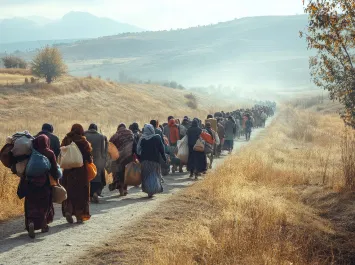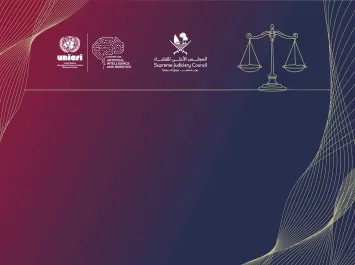"This year began with the harrowing news of a terrorist attack at a mosque in Peshawar, Pakistan. The world watched and listened in horror as the death toll rose from an initial 30 to over 100 within hours as more bodies were uncovered from the debris. More than 200 people, mostly police officers, were injured. This daring suicide bomb attack at a mosque in a police compound was a stark reminder of the imminent danger posed by terrorism and violent extremism, and an example of their effect. This attack was among a number that occurred in the first quarter of the year, with varying degrees of impact on lives and infrastructure.
Terrorism and violent extremism are the bane of our time. From individual lone-wolf mass shootings to suicide bombings, the methods vary but the impacts are devastating. Beyond loss of lives, injuries and the destruction of infrastructure, the twin scourges of terrorism and violent extremism threaten democracy, adversely affect stability of governments, and retard economic development. Such incidents are difficult to foretell and forestall due to their pervasive and unpredictable nature.
This issue of the Freedom From Fear magazine focuses on diverse but critical topics related to violent extremism and terrorism, their far-reaching and cross-cutting consequences, and preventative efforts that are underway. From analysing new tools used by terrorist actors to new hot spots for terrorist attacks, this issue shows evolving trends as terrorists and violent extremists adapt to a changing world. A crucial element is the nexus between terrorism and transnational organized crime, a mutually profitable symbiosis that sustains both terrorist and criminal groups and activities. This issue also assesses the emerging link between climate change and violent extremism, and its resultant threat to peace and security, while also highlighting gender-based norms of violent extremism. It amplifies the voices of terrorism survivors and their role in preventing radicalization, as well as lessons learned from disengaging from violent extremism. This issue also examines how sports can support strategies to address violent extremism and promote inclusion. Lastly, to promote justice and accountability, it looks at the investigation, prosecution and adjudication of radiological and nuclear terrorism.
Furthermore, this issue illustrates efforts by UNICRI and partners to stay ahead of the curve through diverse initiatives. As the United Nations research and training institute for criminal justice and crime prevention, UNICRI has a vested interest in enhancing safety and security. The Institute closely monitors trends and developments, with a view to enhancing the capacity of Member States and partners to prevent, curtail or respond to such incidents. UNICRI implements an array of programmes that contribute to counter-terrorism efforts and works with UN entities, governments, and civil society actors in its whole-of-society approach."
Antonia Marie De Meo, Director of UNICRI



